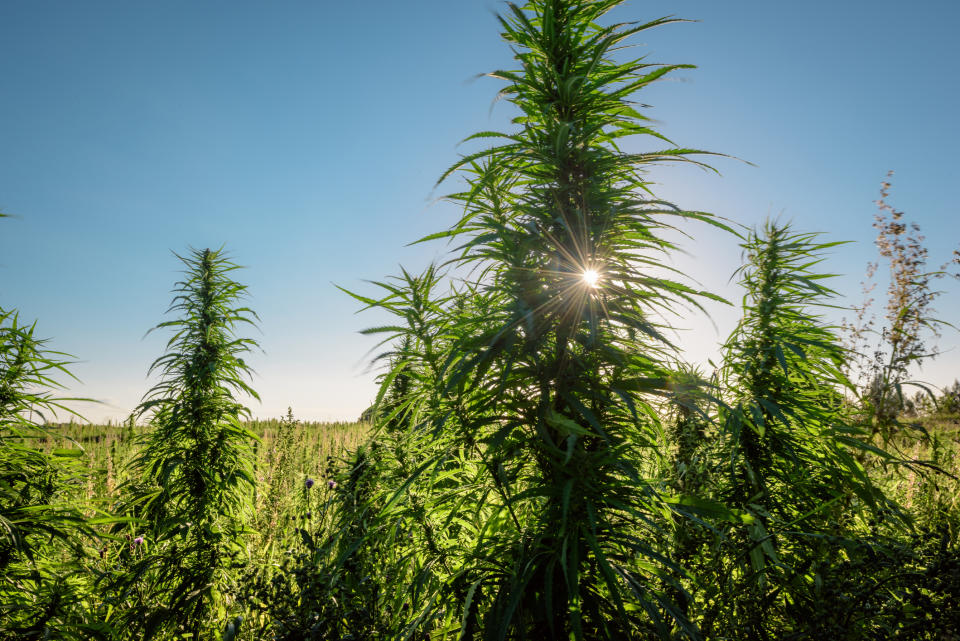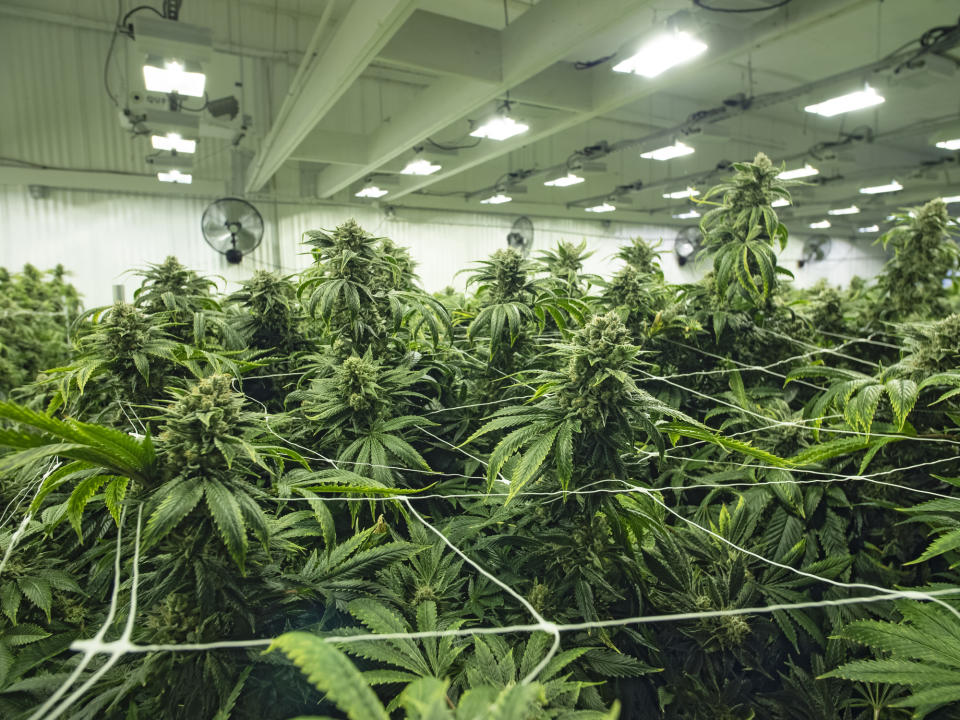My Opinion Has Changed on These 3 Marijuana Stocks
The cannabis industry is maturing before our eyes. What was once a largely taboo industry that operated almost entirely in the shadows is now recreationally legal in Canada and medically legal in two-thirds of the United States. With favorability rising in many developed countries, there's reason to believe that global legal weed sales could very well meet Wall Street's lofty sales projections in five or 10 years' time.
But just as the legal marijuana industry continues to evolve, so must our views and opinions of the companies within it. Like all investors, I'm far from perfect. Some of the cannabis companies I've favored have done poorly (ahem, CannTrust), while others have done quite well. Conversely, some pot stocks that I've had an unfavorable opinion on have kept rising, with others falling. My view of the industry and the companies within it is constantly evolving to account for new developments.
Though it's rare for me to shift my opinion from full-fledged buy to sell, or vice versa, my views of the following three marijuana stocks have certainly changed from the equivalent of buy or sell to a more neutral "wait-and-see."

Image source: Getty Images.
Village Farms International
Despite being the top-performing cannabis stock in the first half of the year, Village Farms International (NASDAQ: VFF) has generally turned me off for two reasons. First, there was the company's vegetable-growing business. Though this acted as a hedge by generating consistent revenue for the company, it's a pretty weather-dependent, low-margin business. When Village Farms' stock rocketed many multiples higher during the first quarter, but was essentially dependent on its vegetable-growing operations for its near-term operating results, it made little sense to me, fundamentally, to stand behind a potentially higher valuation.
The second factor is I've never felt that Village Farms' cannabis-growing operations were all the special. Having partnered with Emerald Health Therapeutics (NASDAQOTH: EMHTF) to create the Pure Sunfarms joint venture, Emerald and Village Farms worked to retrofit Village Farms' existing vegetable-growing greenhouses for marijuana production. The Delta 3 greenhouse, with 1.03 million square feet of growing space, is already complete and operating at full scale, with the nearly equivalent Delta 2 facility expected to be operating at full annual run-rate capacity by the fourth quarter of 2020. Combined, this 2.1 million square feet of space is conservatively projected to yield 150,000 kilos. But compared to forecasts from its peers, this yield per square foot is considerably lower than other growers.
But I've changed my tune on Village Farms, and with the stock having lost half of its value from earlier this year, I no longer believe it's worth avoiding. However, it's not Emerald Health's and Village Farms' cannabis operations that have coerced this shift in opinion. Rather, it's the aggressive nature by which Village Farms is thrusting itself into U.S. hemp production.
According to a recent company update, its two joint venture projects have planted nearly 600 acres and 120 acres of hemp, respectively, with harvesting set to begin in August for the larger crop and during the fourth quarter for the smaller crop. Furthermore, it has 5.7 million square feet of greenhouses in West Texas that could be retrofit for hemp production. As a predominantly cheap and easy crop to grow, relative to cannabis, hemp serves as an abundant source of high-margin cannabidiol (CBD), the nonpsychoactive cannabinoid best known for its medical benefits.
Suffice it to say, hemp makes Village Farms International and its $456 million market cap (as of this past weekend) worth a closer look.

Image source: Getty Images.
Liberty Health Sciences
Though small, vertically integrated U.S.-focused dispensary operator Liberty Health Sciences (NASDAQOTH: LHSIF) is a company I'd previously fancied. Florida's medical marijuana market offered billion-dollar sales potential, with the Sunshine State only doling out a little more than one dozen cultivation licenses. With Liberty Health holding one of these licenses, as well as constructing the largest grow farm in the state of Florida, I believed it to have a clear shot at success.
However, Liberty Health's stock performance has been abysmal (down more than 60% over the past eight months), and my opinion on the company has officially shifted to more of a wait-and-see approach rather than believing it looks intriguing. The reason? A lack of trust in management and no clearly defined advantages in the Sunshine State.
Working backwards, I expected Liberty Health to be a dominant force in Florida. But only recently did the company open its 16th in-state retail location, which substantially trails the likes of Trulieve Cannabis and Curaleaf Holdings. In fact, Trulieve has become very profitable solely because of its market share dominance in the Sunshine State.
But the bigger issue here is the lack of trust and confidence in management. Liberty Health Sciences was first slammed when a short-seller report emerged in early December against Aphria (NYSE: APHA). This report, which alleged that Aphria grossly overpaid for its Latin American assets, did have a materially negative impact on Liberty, because then-Aphria CEO Vic Neufeld was the chairman of Liberty's board of directors, and Aphria co-founder John Cervini also sat on Liberty's board. Let's call it "guilt by association." Even with Aphria cleared on allegations of overpaying for these assets, an internal review uncovered conflicts of interest among a few Aphria executives that led to Neufeld stepping aside as CEO. Liberty Health has never quite recovered from this guilt by association.
Then, in late February, Liberty Health Sciences would see its CEO, George Scorsis, and CFO Rene Gulliver, announce their resignations. Turnover at the top is always a bit worrisome for a company still in its rapid growth phase. For now, the wait-and-see approach seems prudent.

Image source: Getty Images.
Innovative Industrial Properties
My opinion has also evolved on high-flying cannabis real estate investment trust (REIT) Innovative Industrial Properties (NYSE: IIPR).
For quite some time now, Innovative Industrial Properties, also known IIP, has been kicking bud and taking names. It's been acquiring land and facilities for growing and processing cannabis in the U.S., then leasing them out for extended periods of time. In addition, IIP passes along 3.25% annual rental increases, and collects a 1.5% management fee that's tied to the annual base rental rate. In effect, it's built in a very modest means of organic growth, on top of the growth it's experienced by more than doubling its asset portfolio since 2019 began.
Though I've long believed IIP is a company worth buying, its most recent run-up in value has shifted my opinion of the company to one that views it as fairly valued.
The first factor to consider is that Innovative Industrial will regularly need to issue common stock if it's to keep up this blistering pace of property acquisitions. Just last week, it announced the issuance of 1.3 million shares, not counting the underwriter's option. While this is a perfectly normal practice for REITs to raise capital, it can really weigh on existing shareholders. And with the company now boasting 23 properties, it'll take a lot more money to double the size of its portfolio.
A subtle factor that's softened my favorability toward IIP is the company's return on invested capital (ROIC). What had once been an ROIC of better than 15% has now slipped to 14.7%. Don't get me wrong, a completely payback on invested capital in less than five years isn't too shabby. But this suggests that the margin quality of the leases it's signing has deteriorated a bit over the past year. At 45 times next year's earnings and 19 times forecasted 2020 sales, that's not something I'd be thrilled to see.
Again, to be clear, I still think IIP's strategy is on point, and it's a solid company. But I no longer consider it an intriguing value. Instead, I would look for a significant near-term pullback or a long period of consolidation to allow the company's operating results to catch up with its currently aggressive valuation.
More From The Motley Fool
Sean Williams owns shares of CannTrust Holdings Inc. The Motley Fool recommends CannTrust Holdings Inc and Innovative Industrial Properties. The Motley Fool has a disclosure policy.

